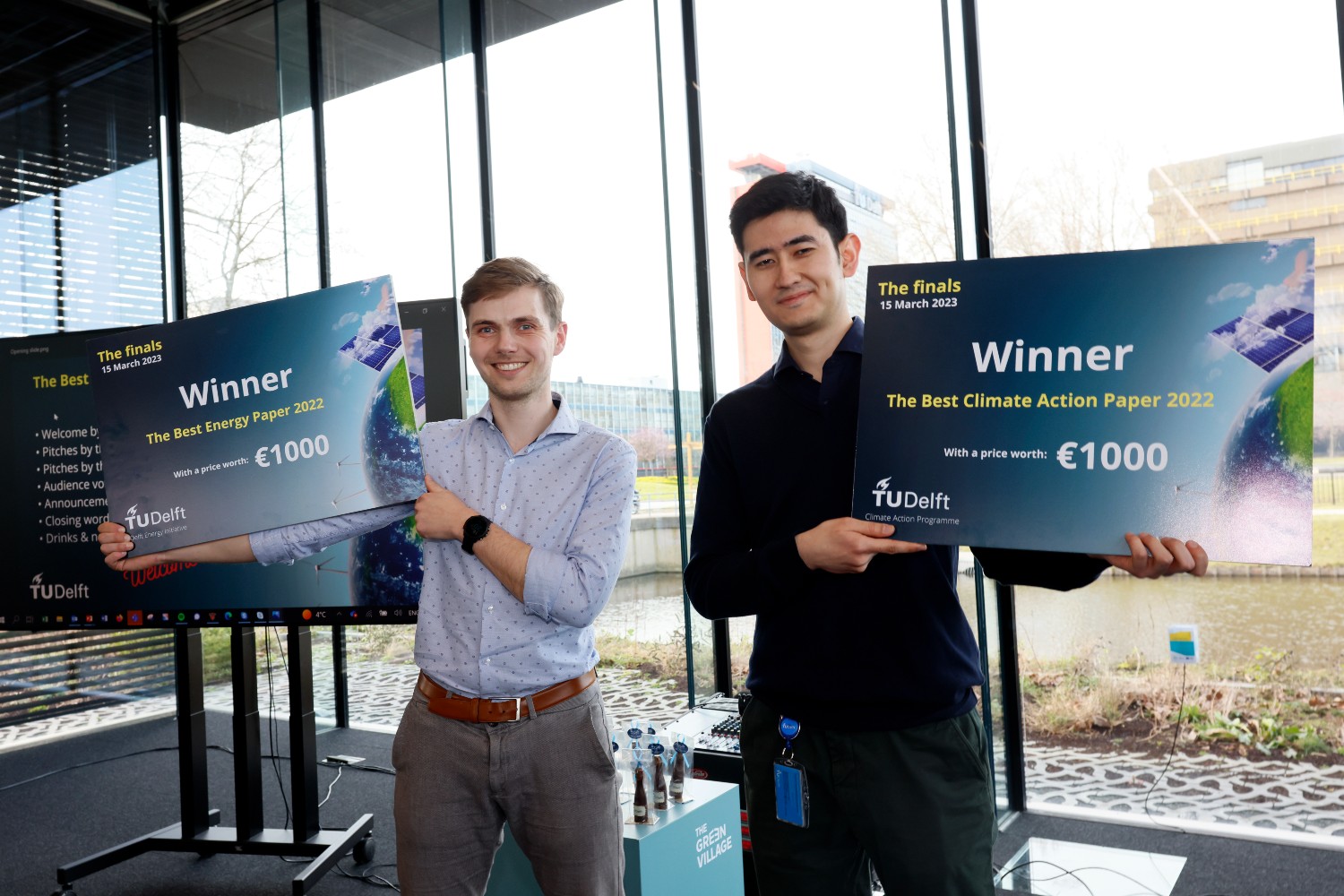Of the eight selected publications on energy and climate, two were awarded prizes on Wednesday 15 March. These were about wind farms and flight paths.
Maarten van den Broek and Jin Maruhashi wrote the best energy and climate papers. (Photo: Roy Borghouts)
By holding the Best Climate & Energy Paper competition, TU Delft highlights innovations that accelerate the energy transition or mitigate the effects of climate change. Beforehand, the organisers had selected eight publications, two of which were highlighted on Wednesday 15 March. The best climate thesis was Climate neuroscience for aviation by Jin Maruhashi and the best energy thesis was An additional wind turbine out of thin air by Maarten van den Broek.
Climate neuroscience
On the best climate thesis by Jin Maruhashi, jury member and climate researcher Prof. Herman Russchenberg (Faculty of Civil Engineering and Geosciences) said “As befits engineers, we first want to properly understand the climate problem. A good example of this is Jin’s neurological machine learning model, which is an excellent way of mapping the climate effect of aviation. With the knowledge Jin’s model gives us, we hope to get a better grip on the role of nitrogen oxides on global warming, for example.”
Positioning wind turbines
Professor of Energy System Analysis and jury member Prof Kornelis Blok (Faculty of Technology, Policy and Management) said of Maarten van den Broek’s best energy thesis, “Let’s start by saying that three words are very, very important: accelerate, accelerate, accelerate. The world has only 20, at most 30, years to accelerate the energy transition. That is a very short time to redevelop the entire energy system. So, we need to get as much energy as possible out of all the wind turbines we install. And that is exactly what Maarten’s study contributes to. By positioning wind turbines differently in relation to each other, you can significantly increase their efficiency.”
- – More on Climate neuroscience for aviation
- – More on An additional wind turbine out of thin air
Do you have a question or comment about this article?
j.w.wassink@tudelft.nl


Comments are closed.